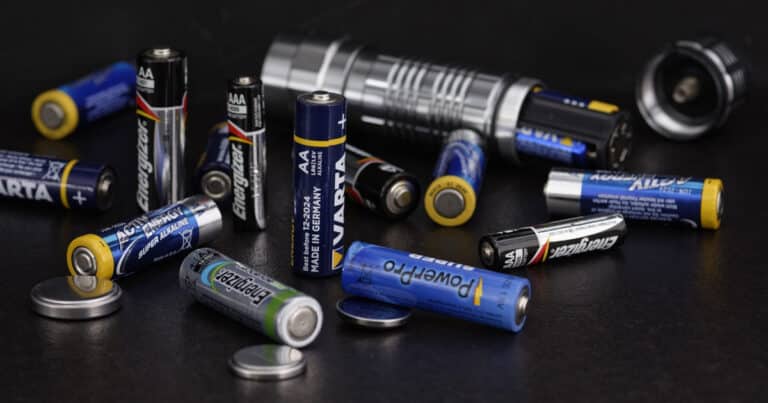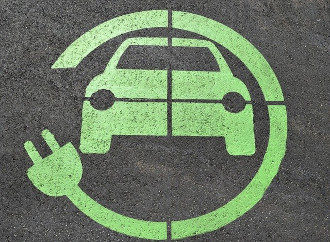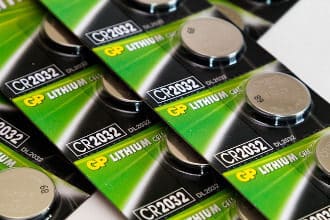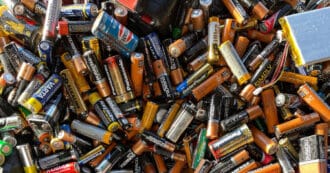By Sydney Cohen – Did you know that batteries can be recycled? In fact, recycling batteries is one of the most important things you can do to protect the environment. Batteries contain harmful chemicals that can pollute the air and water if they are not disposed of properly. In this blog post, we will discuss how to recycle household batteries safely and responsibly.
Despite the push for more use of electricity in the wake of climate change in substitution for fossil fuel use, “in the U.S. only about 5% of lithium-ion batteries – the technology of choice for electric vehicles and many high-tech products – are actually recycled. As sales of electric vehicles and tech gadgets continue to grow, it is unclear who should handle hazardous battery waste or how to do it.”
This blog post will inform you on the methods of disposing of particular household batteries, so continue reading to learn how to protect your household garbage from hazardous waste, as well as protecting the environment!
Single-Use Batteries
Single-use batteries are most commonly used in everyday household objects, such as clocks, calculators, smoke detectors, and more. But what happens once the battery runs out of power? We must take care to prevent toxic chemicals from entering the environment, so it is important to follow local guidelines for recycling.
Alkaline Batteries
Alkaline batteries are a common household battery used to power digital clocks, cameras, calculators, flashlights, etc. Alkaline batteries are often single-use batteries, and battery recycling is not hard with these common batteries.
The EPA notes that many communities allow you to place these battery types in the household trash. However, some reclamation companies recycle batteries, and it is best to “send used alkaline and zinc carbon batteries to battery recyclers or check with your local or state solid waste authority.”
Zinc Carbon Batteries
Zinc carbon batteries, similar to alkaline batteries, are another common form of single-use batteries used around the house. According to the EPA’s battery recycling webpage, “some common alkaline and zinc-carbon batteries include 9 Volt, AA, AAA, C, D and some button cells.”
These single-use batteries can often be safely thrown into the trash, but it is always a good idea to check with your local district to find out how to recycle batteries in your house.
Lithium Single-Use Batteries
Another form of single-use batteries are made with lithium metal and are non-rechargeable batteries. Some products that use these batteries are cameras, watches, remote controls, and smoke detectors.
According to the EPA, “they can be brought to specialized battery recyclers, participating retailers that provide battery takeback services or local household hazardous waste collection programs.” It is also a good idea to check with your “local solid waste authority for additional management options.”
“EPA recommendation: Check for the word “lithium” marked on the battery. Do not put button-cell, coin, or lithium single use batteries in the trash or municipal recycling bins.”
Rechargeable Batteries
Rechargeable batteries are also quite common, particularly in electronics that are quick to drain a lot of energy. Rechargeable batteries can be used for 5-7 years!
However, when it comes to recycling rechargeable batteries safely, we must take proper care to recycle them in a way that will not harm the environment. Continue reading to learn more about the types of rechargeable batteries and how to recycle them!
Nickel-Cadmium or Lithium-Ion Batteries
According to the EPA, nickel-cadmium batteries “are typically used in cordless power tools, cordless phones, digital and video cameras, two-way radios, bio-medical equipment and video cameras.” It is recommended to “look for labels identifying battery chemistry. Do not put rechargeable batteries in the trash or municipal recycling bins.” You should look into local recycling facility guidelines.
Lithium-ion batteries are “commonly found in older cellphones, power tools, digital cameras, laptops, children’s toys, e-cigarettes, small and large appliances, tablets and e-readers.” A lithium battery can be dangerous if broken, so it is recommended to find a local recycling location that has guidelines for household battery recycling.
A Rechargeable Battery is More Economically Friendly
Rechargeable batteries can be a preferred choice of battery because they generate less waste. They can last for years, but still often contain chemicals that can create household hazardous waste.
To avoid this household hazardous waste, it is important to follow local guidelines on recycling batteries. You can find detailed guidelines on the EPA’s website for specific household battery recycling.
Batteries and Religion
As this blog has made clear, recycling batteries is very important for a variety of reasons, such as preventing pollution and not wasting resources. But just as important is that the more batteries we recycle, the less we have to extract from the land to make new batteries.
This extracting from the land to make batteries can be harmful both environmentally and religiously, as shown in a Guardian article published in October 2021. The author, Hallie Golden, describes how indigenous people in Northern Nevada are trying to protect their land from a “new 1,000-acre lithium mine that would destroy sacred land in order to extract a central component for electric car batteries.” Transition from gas guzzling vehicles to electric cars is important, but it shouldn’t come at the expense of native people and the environment.
In each battery there are precious materials that were extracted from the land, and so we should work to reduce battery waste and creating new batteries when we can instead use the battery materials we already have. A battery can lose its electric spark, but it can never lose its Divine spark that compels us to deal with it as the gift from God that it is.
The Conversation, an online academic journal, has ideas to make battery recycling safer. They believe that “one useful step would be for governments to require that batteries carry universal tags, similar to the internationally recognized standard labels used for plastics and metals recycling. These could help to educate consumers and waste collectors about how to handle different types of used batteries.”
*Featured image source






